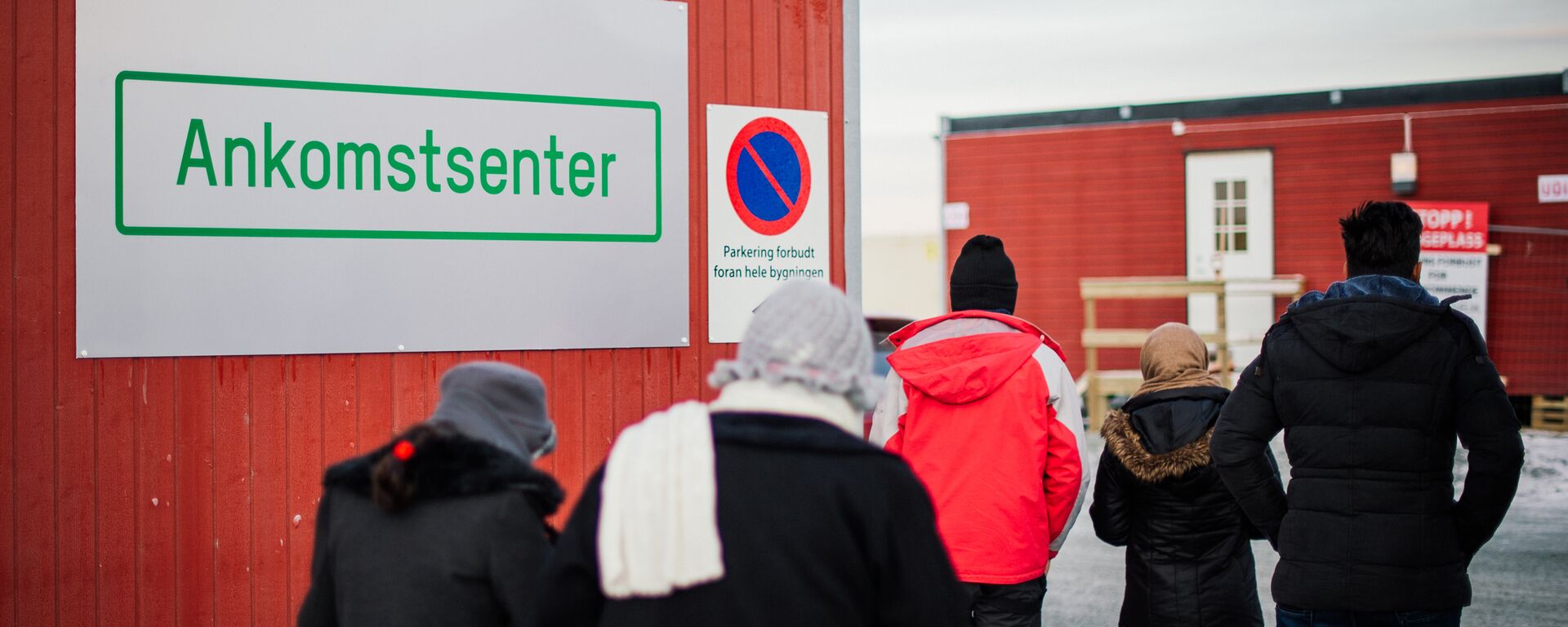https://sputnikglobe.com/20220110/norway-finds-education-gaps-between-immigrants-ethnic-norwegians-1092146825.html
Norway Finds Education Gaps Between Immigrants, Ethnic Norwegians
Norway Finds Education Gaps Between Immigrants, Ethnic Norwegians
Sputnik International
Immigrants have been found to do worse in national tests and have a lower share of those pursuing upper secondary and higher education altogether.
2022-01-10T06:49+0000
2022-01-10T06:49+0000
2022-11-03T19:30+0000
newsfeed
europe
immigration
norway
scandinavia
education
https://cdn1.img.sputnikglobe.com/img/07e5/0a/1c/1090275803_0:97:1281:817_1920x0_80_0_0_3cfc1d836687c6a8685db8ecb3498e15.jpg
Large gaps in education levels between immigrants and other Norwegians remain despite the government's efforts to plug them, Statistics Norway found in its most recent report.In the report, titled “Immigrants – how are they doing in the educational process?”, people in three different cohorts (born in 1987-1989, 1992–1994, and 1997–1999) have been followed through the educational process from primary school to the highest level of education achieved.It was concluded that the younger immigrants are when they arrive in Norway, the better they do in the educational process. For instance, those who immigrated to Norway when they were five years old or younger have better results than those who immigrated when they were six years old or older. The youngest of the immigrants followed the same pattern as those without an immigrant background, with relatively equal proportions of completed university and college education.However, regardless of the group, ethnic Norwegians have higher primary school points and higher average grade scores in Norwegian, English, and mathematics in national tests than immigrants, SSB found. For national tests, it is still the case that those who did not immigrate to Norway perform better than the immigrant groups.Immigrants were also found to have a slightly lower proportion of those who don't directly transition to upper secondary education due to better grades, and the proportion is lowest among those who immigrated at the age of six years or older. Immigrants also have a larger proportion of those skipping upper secondary and higher education altogether. Students from Asia, including Turkey, have the highest proportion with direct transfer while students from Africa have the lowest.Meanwhile, the share of immigrants and their descendants is rising rapidly due to demographic problems and mass immigration. As of 2021, there were nearly a million immigrants and Norwegian-born residents with two immigrant parents, accounting for 18.5 percent of Norway's total population of 5.3 million. By contrast, in 1993, immigrants only accounted for 4.3 percent of the country's population.For over a decade, Poles have constituted by far the largest group of immigrants, greatly outnumbering Swedes, Lithuanians and Somalis.
https://sputnikglobe.com/20211217/norwegians-increasingly-positive-about-growing-immigration-survey-finds-1091592396.html
norway
scandinavia
Sputnik International
feedback@sputniknews.com
+74956456601
MIA „Rossiya Segodnya“
2022
News
en_EN
Sputnik International
feedback@sputniknews.com
+74956456601
MIA „Rossiya Segodnya“
Sputnik International
feedback@sputniknews.com
+74956456601
MIA „Rossiya Segodnya“
education, mass immigration, norway
education, mass immigration, norway
Norway Finds Education Gaps Between Immigrants, Ethnic Norwegians
06:49 GMT 10.01.2022 (Updated: 19:30 GMT 03.11.2022) In Norway, immigrants have been found to do worse on standardised national tests, and a smaller proportion of them pursue an upper secondary education or higher education altogether.
Large gaps in education levels between immigrants and other Norwegians remain despite the government's efforts to plug them, Statistics Norway found in its most recent report.
In the report, titled “Immigrants – how are they doing in the educational process?”, people in three different cohorts (born in 1987-1989, 1992–1994, and 1997–1999) have been followed through the educational process from primary school to the highest level of education achieved.
It was concluded that the younger immigrants are when they arrive in Norway, the better they do in the educational process. For instance, those who immigrated to Norway when they were five years old or younger have better results than those who immigrated when they were six years old or older. The youngest of the immigrants followed the same pattern as those without an immigrant background, with relatively equal proportions of completed university and college education.
However, regardless of the group, ethnic Norwegians have higher primary school points and higher average grade scores in Norwegian, English, and mathematics in national tests than immigrants, SSB found. For national tests, it is still the case that those who did not immigrate to Norway perform better than the immigrant groups.
Immigrants were also found to have a slightly lower proportion of those who don't directly transition to upper secondary education due to better grades, and the proportion is lowest among those who immigrated at the age of six years or older. Immigrants also have a larger proportion of those skipping upper secondary and higher education altogether. Students from Asia, including Turkey, have the highest proportion with direct transfer while students from Africa have the lowest.

17 December 2021, 06:47 GMT
Meanwhile, the share of immigrants and their descendants is rising rapidly due to demographic problems and mass immigration. As of 2021, there were nearly a million immigrants and Norwegian-born residents with two immigrant parents, accounting for 18.5 percent of Norway's total population of 5.3 million. By contrast, in 1993, immigrants only accounted for 4.3 percent of the country's population.
For over a decade, Poles have constituted by far the largest group of immigrants, greatly outnumbering Swedes, Lithuanians and Somalis.


